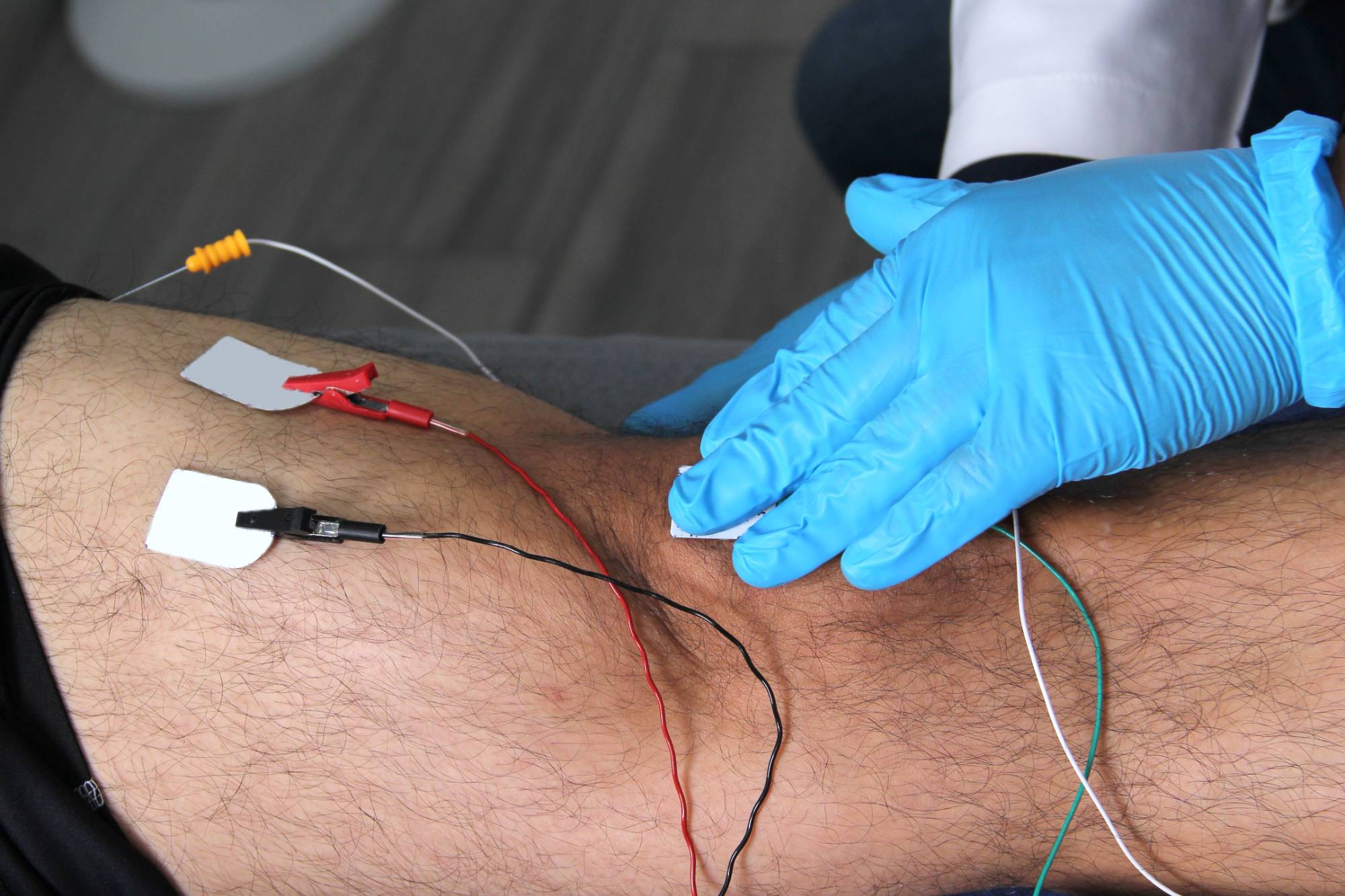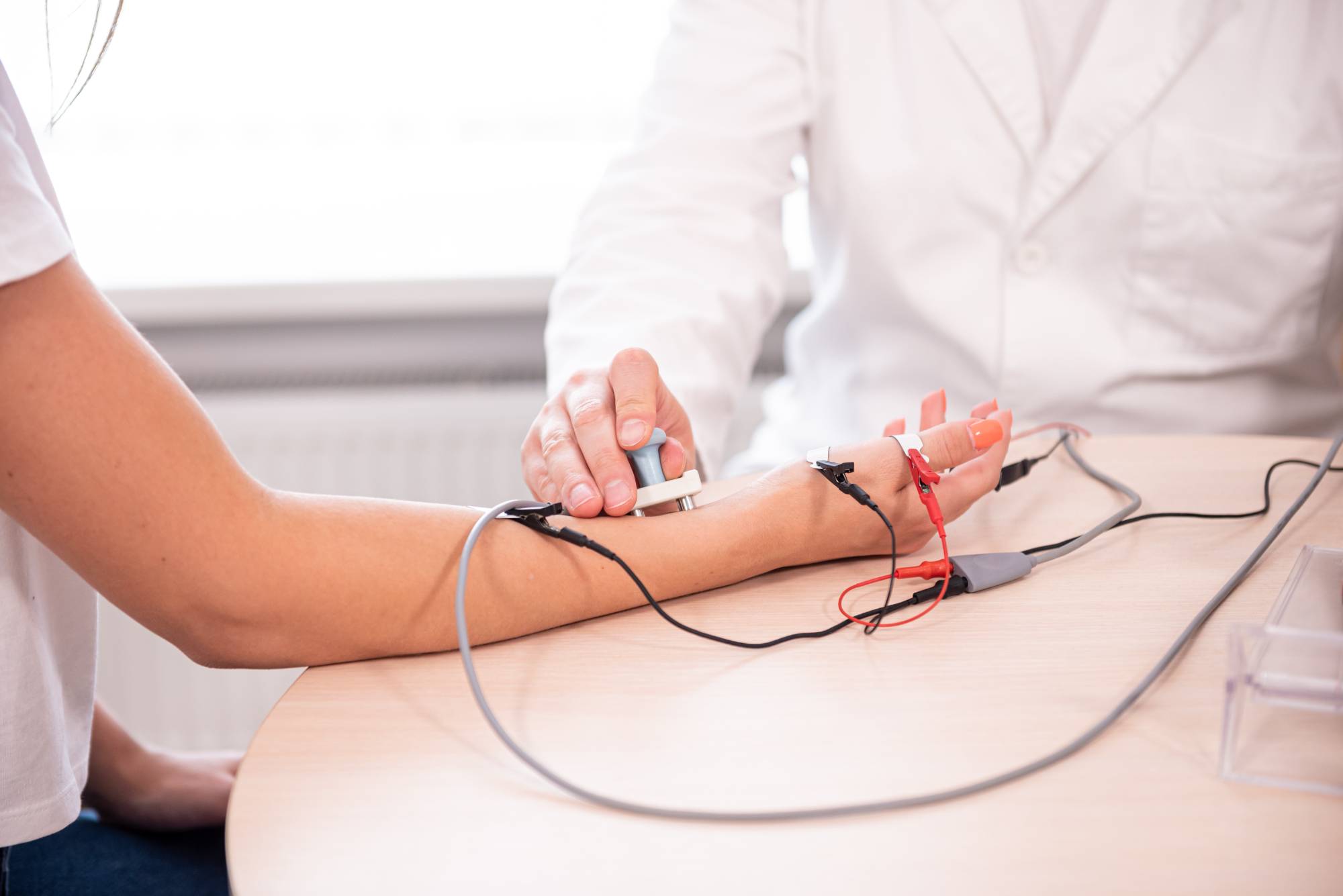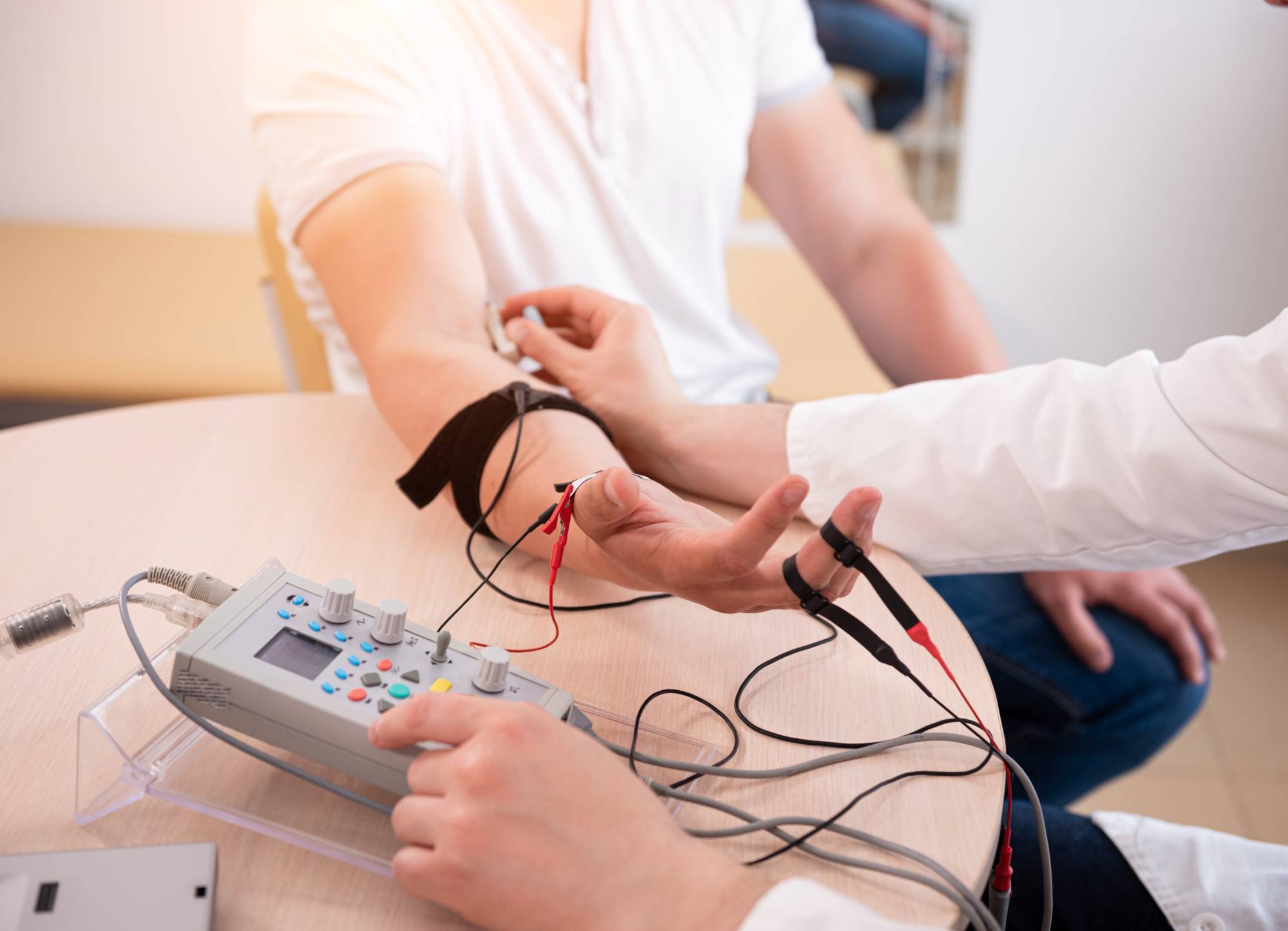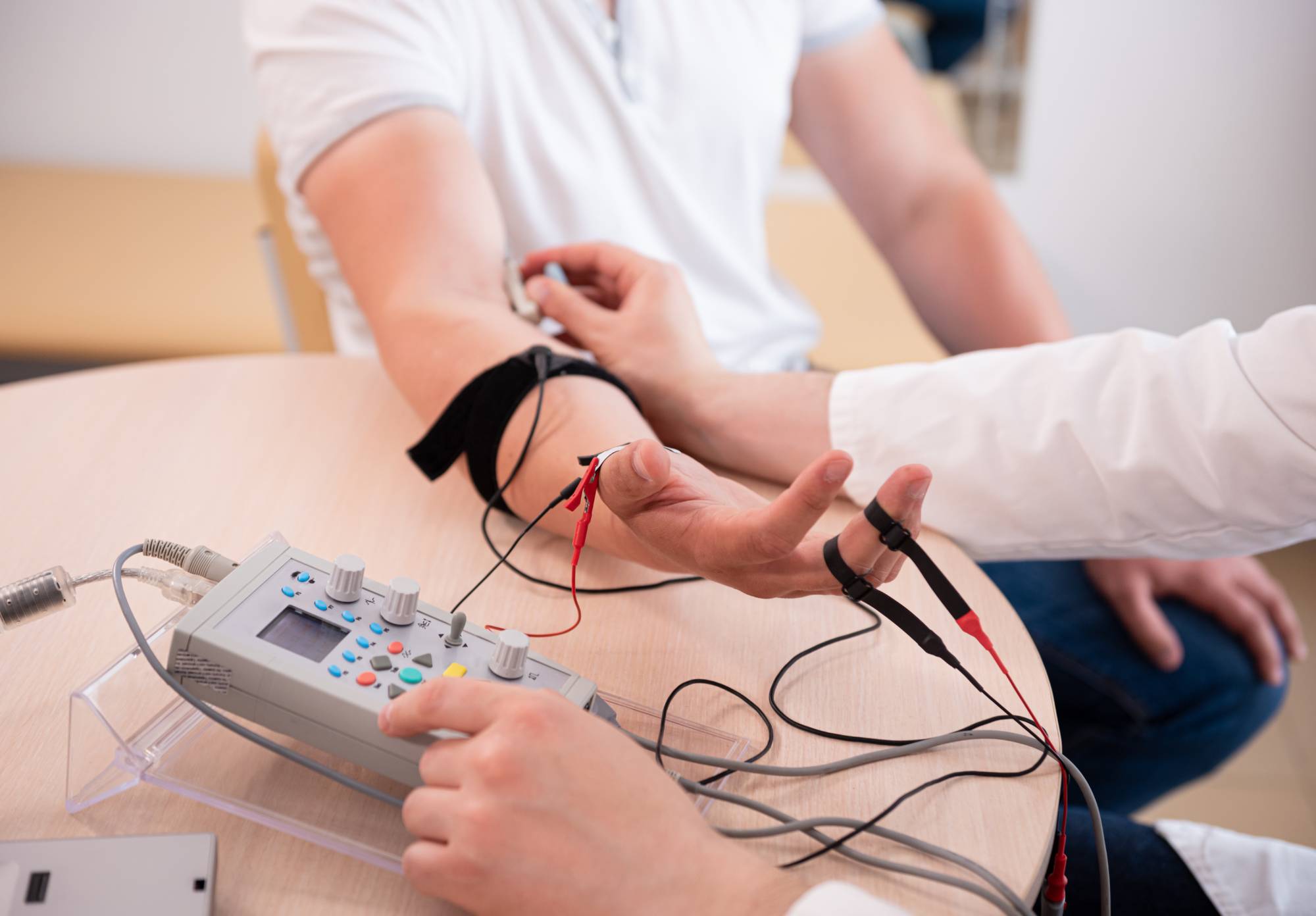Advanced electrodiagnostic testing that pinpoints exactly what’s causing your numbness, tingling, or muscle weakness.

Reviews

You’re tired of guessing what’s wrong. Your hands go numb at night, your leg tingles when you sit, or your muscles feel weaker than they should. You’ve tried stretches, changed your sleeping position, even switched chairs at work. Nothing helps because you’re treating symptoms, not the source.
EMG testing changes that. This diagnostic procedure measures the electrical activity in your muscles and nerves, showing us exactly where the problem starts. No more wondering if it’s carpal tunnel, a pinched nerve, or something else entirely.
Within an hour, you’ll have concrete answers. We’ll know if your median nerve is compressed, if your sciatic nerve is irritated, or if muscle damage is causing your weakness. That clarity changes everything about how we approach your treatment.
We’ve been serving Corona and the surrounding Queens communities with specialized diagnostic testing since our founding. Our physicians are board-certified in electrodiagnostic medicine, meaning they’ve completed additional training specifically in nerve and muscle testing.
We’ve performed thousands of EMG and nerve conduction studies. We know the difference between a mild carpal tunnel case and severe median nerve damage. We can spot the early signs of diabetic neuropathy before permanent damage occurs.
Our Corona location uses the latest electrodiagnostic equipment, and we work directly with your referring physician to ensure your results lead to the right treatment plan.

Your EMG testing appointment typically takes 30 to 60 minutes. We start with nerve conduction studies, where small electrodes are placed on your skin over the nerves we’re testing. You’ll feel brief, mild electrical pulses as we measure how fast signals travel through your nerves.
Next comes the electromyography portion. A thin needle electrode is inserted into specific muscles to record their electrical activity. You’ll contract and relax these muscles while we measure the signals. Most patients describe the sensation as similar to getting a vaccination.
We interpret your results immediately. Before you leave, we’ll explain what we found, what it means for your condition, and provide a detailed report for your referring doctor. You’ll have answers the same day, not weeks later.

Ready to get started?
Your EMG testing session includes both nerve conduction studies and needle electromyography. We test multiple nerve pathways and muscle groups based on your specific symptoms. If you’re dealing with hand numbness, we’ll test your median, ulnar, and radial nerves. Back pain with leg symptoms means we’ll examine your lumbar nerve roots.
We also provide immediate results interpretation. Many facilities make you wait days or weeks for results. We believe you deserve answers right away, especially when you’re dealing with pain or worried about your symptoms.
Your comprehensive report goes directly to your referring physician, but we also take time to explain everything in terms you can understand. You’ll leave knowing exactly what’s happening with your nerves and muscles, and what the next steps should be.

New York:
Florida:
Support